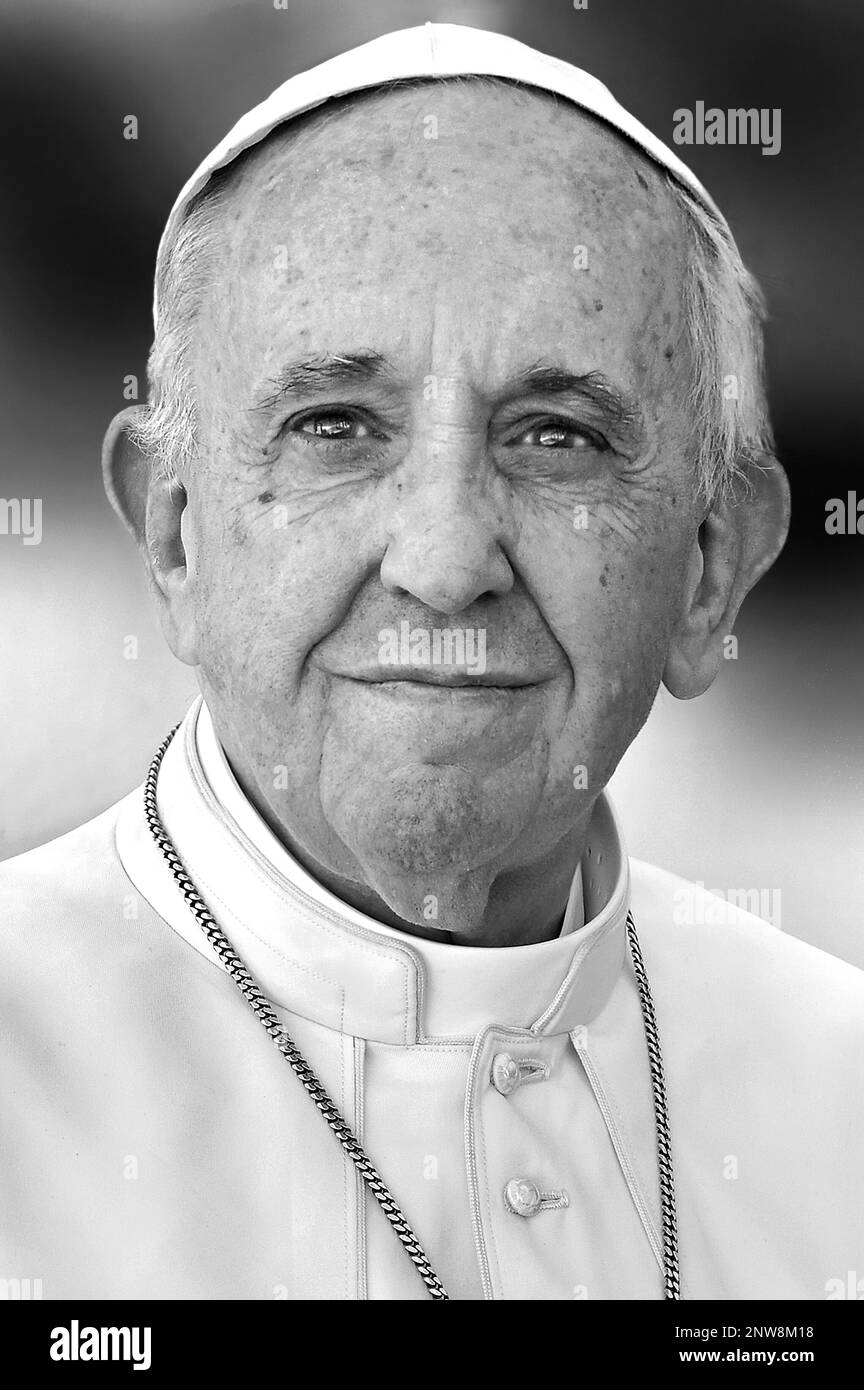Pope Francis, the spiritual leader of over 1.3 billion Catholics worldwide, has often been at the center of various controversies and misunderstandings. Among these, accusations of satanism have surfaced in certain circles, leading to confusion and misinformation. It's crucial to examine such claims critically and understand the context behind the Pope's words and actions. This article aims to debunk myths surrounding Pope Francis and shed light on the truth.
In an era where information spreads rapidly through social media and other digital platforms, it becomes increasingly important to verify facts before accepting them as truth. Misinterpretations and fabrications can easily take root, causing harm to individuals and institutions alike. Pope Francis himself has spoken extensively about the dangers of fake news and its impact on society. By exploring his statements and addressing false allegations, we hope to provide clarity on this sensitive topic.
Understanding Context: The Devilish Joke
Pope Francis did make a lighthearted remark comparing himself to the devil when contrasted with St. John Paul II. However, this comment was made in jest and should not be taken out of context. Such humor is typical for the Pope, who frequently uses anecdotes and metaphors to connect with people from all walks of life. His intention was never to suggest any satanic leanings but rather to highlight the revered status of his predecessor.
Moreover, Pope Francis often emphasizes humility and self-deprecation in his teachings. By making such remarks, he demonstrates that no one, including himself, is beyond reproach or incapable of improvement. This approach aligns with his broader message of compassion and understanding within the Catholic Church.
It is essential to recognize the cultural nuances and linguistic differences when interpreting statements made by religious leaders. What might seem controversial at first glance could simply reflect a different way of expressing ideas meant to inspire reflection and growth among believers.
Satanic Realities: A Reminder From The Vatican
Pope Francis firmly believes in the existence of Satan and regularly reminds the faithful of this reality. During a Mass held in St. Peter’s Square, he reiterated that Satan is indeed real and poses challenges even today. Jesus Christ himself faced temptations from the devil during his time on Earth, proving that evil forces remain active throughout history.
This belief in Satan does not mean Pope Francis promotes fearmongering; instead, he encourages vigilance against moral corruption and wrongdoing. By acknowledging the presence of malevolent influences, individuals are better equipped to resist them and uphold virtuous values in their daily lives.
Furthermore, recognizing the reality of Satan serves as a reminder of humanity's constant struggle between good and evil. Through faith and prayer, Christians are called upon to strengthen their resolve against temptation while fostering love, kindness, and unity among communities worldwide.
Debunking Photos: Fabricated Imagery Of The Pontiff
Claims circulating online purportedly showing Pope Francis meeting with so-called satanic priests have been thoroughly debunked by fact-checking websites like Snopes. These images were found to be fabricated or taken out of context, further illustrating how misinformation can spread unchecked across digital platforms.
Experts specializing in digital verification emphasize the importance of cross-referencing sources before accepting claims at face value. In many cases, what appears shocking or scandalous may lack credible evidence supporting its validity. Therefore, exercising caution when encountering sensational headlines proves vital in maintaining accurate knowledge.
As part of combating disinformation campaigns targeting prominent figures such as Pope Francis, organizations continue working diligently to expose falsehoods and promote reliable journalism standards. Public awareness plays a significant role in ensuring truth prevails over baseless accusations.
Religious Extremism: Condemning Violence In God's Name
On multiple occasions, Pope Francis has condemned acts of violence committed in the name of religion, labeling them as satanic. One notable instance occurred during a Mass commemorating a French priest murdered by ISIS-supporting extremists. The pontiff stressed that killing under divine pretenses contradicts fundamental tenets of Christianity and other major world religions.
His stance reflects a commitment to promoting peace and reconciliation amidst global conflicts fueled by ideological differences. By denouncing such actions, Pope Francis underscores the importance of respecting human dignity regardless of creed or nationality.
Additionally, his advocacy for interfaith dialogue seeks to bridge divides separating diverse groups, fostering mutual respect and cooperation based on shared principles of justice and equality. Such efforts aim to counteract extremist narratives perpetuating hatred and division around the globe.
Vatican Responses: Addressing False Accusations
The Vatican has consistently refuted allegations branding Pope Francis as a servant of Satan or engaging in heretical practices. Archbishop Carlo Maria Vigano, known for espousing conspiracy theories, levied these baseless charges against the Holy See leadership. However, official responses affirm the Pope's unwavering dedication to upholding traditional Catholic doctrines alongside necessary reforms aimed at revitalizing the Church.
Efforts to modernize aspects of Catholicism do not equate to abandoning core beliefs but rather adapting them to contemporary societal needs without compromising integrity. Critics often misinterpret progressive initiatives as signs of deviation when they actually represent thoughtful adaptations ensuring relevance within evolving contexts.
In conclusion, addressing false accusations requires both patience and persistence from those committed to preserving factual accuracy regarding influential public figures like Pope Francis. Continued education and open communication serve as key tools in dismantling harmful myths surrounding religious leaders and fostering greater understanding among followers everywhere.

